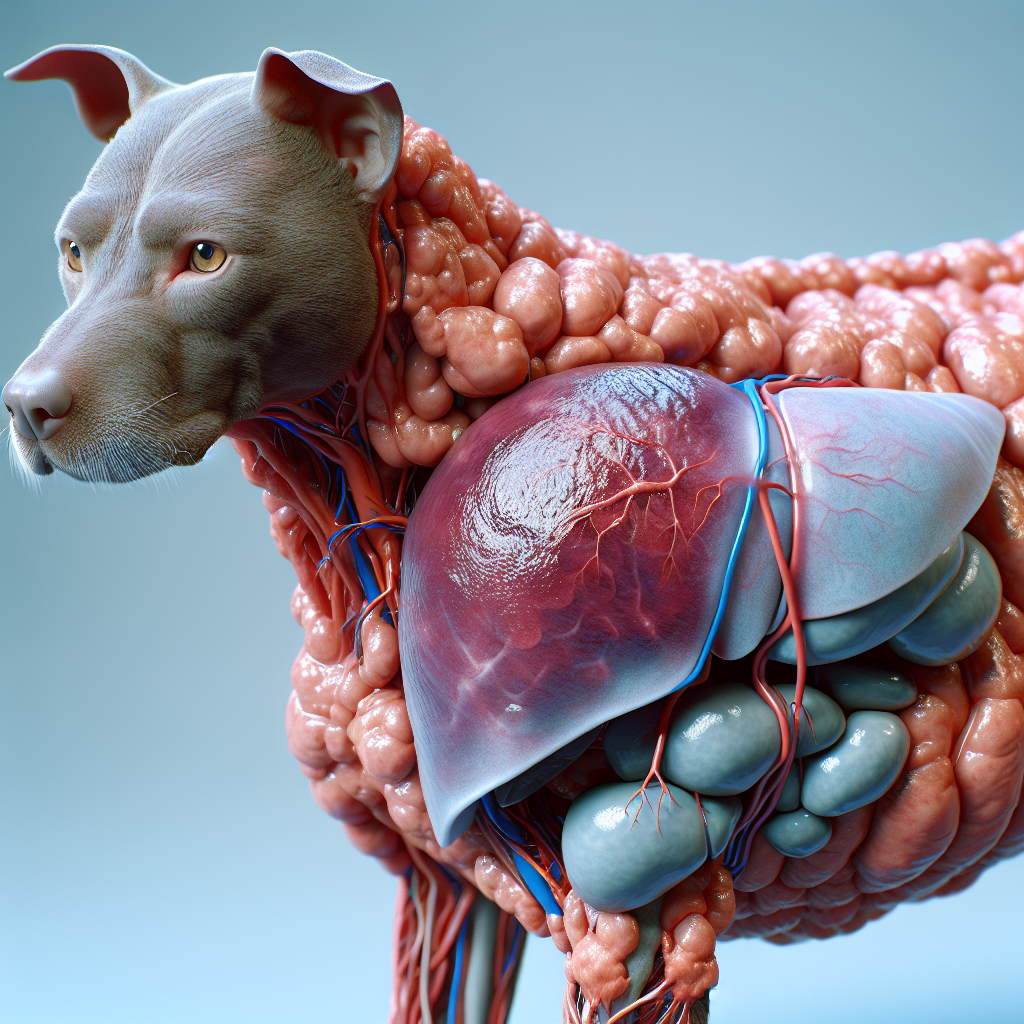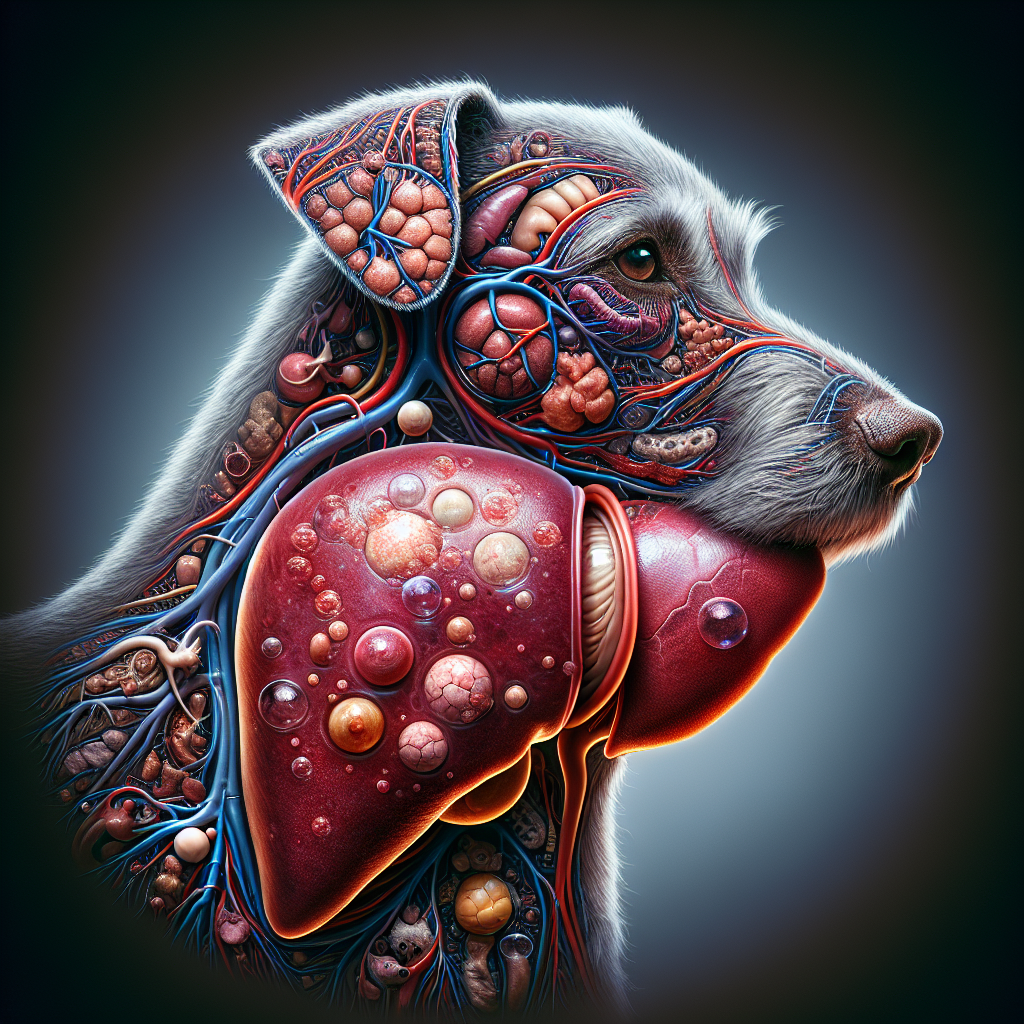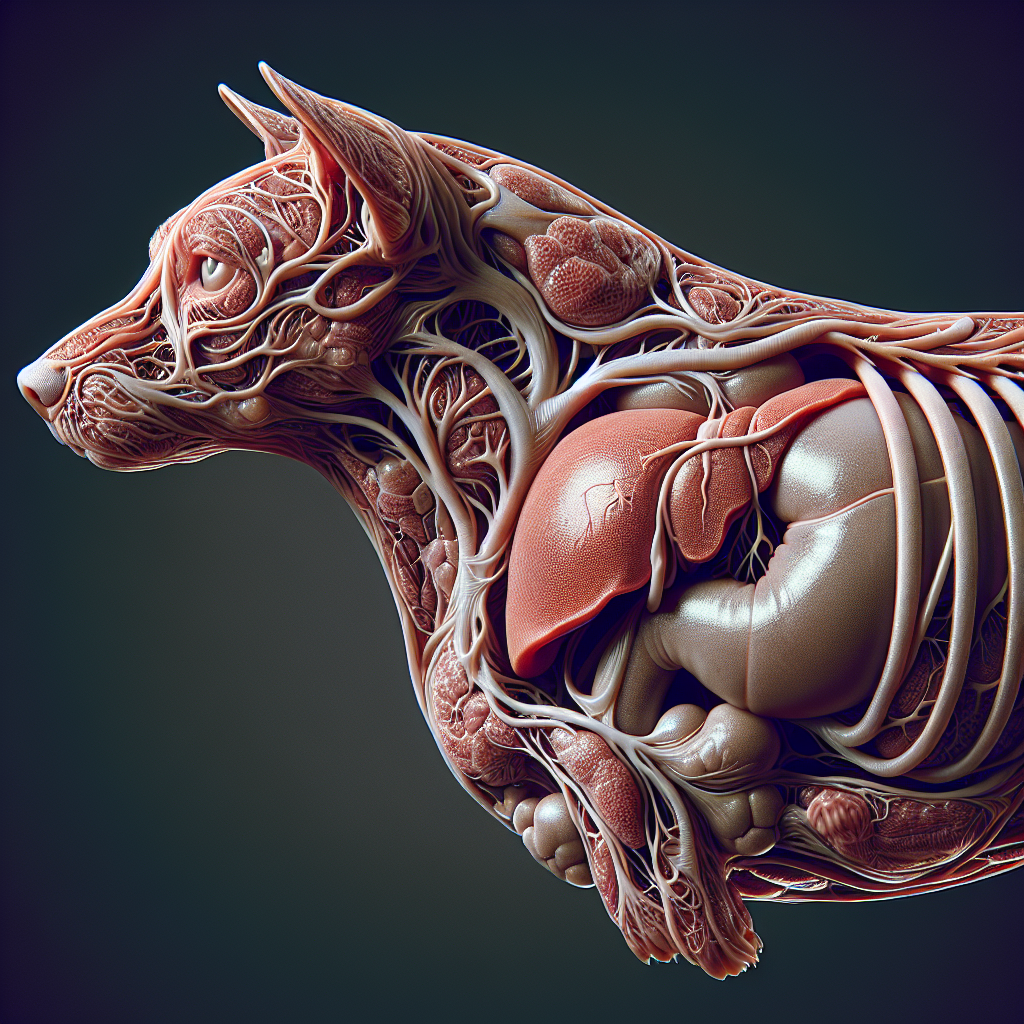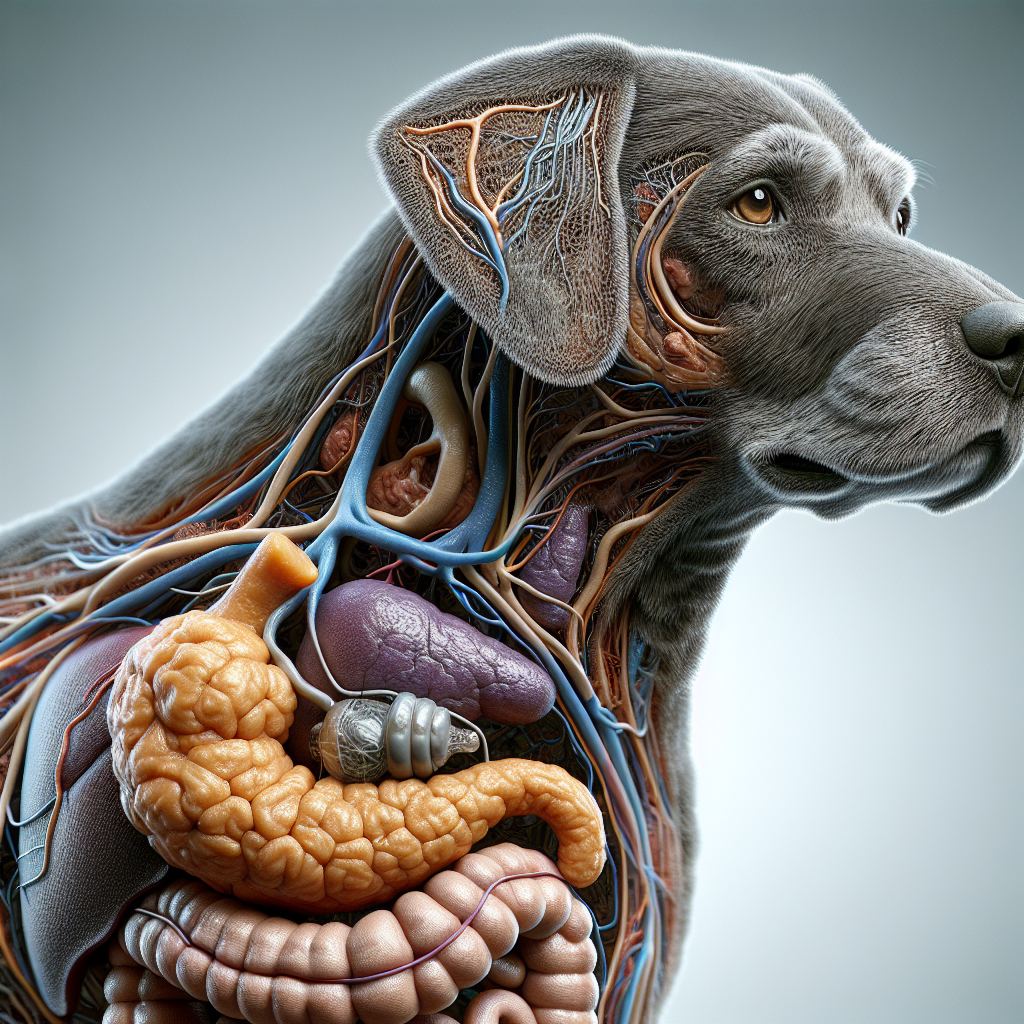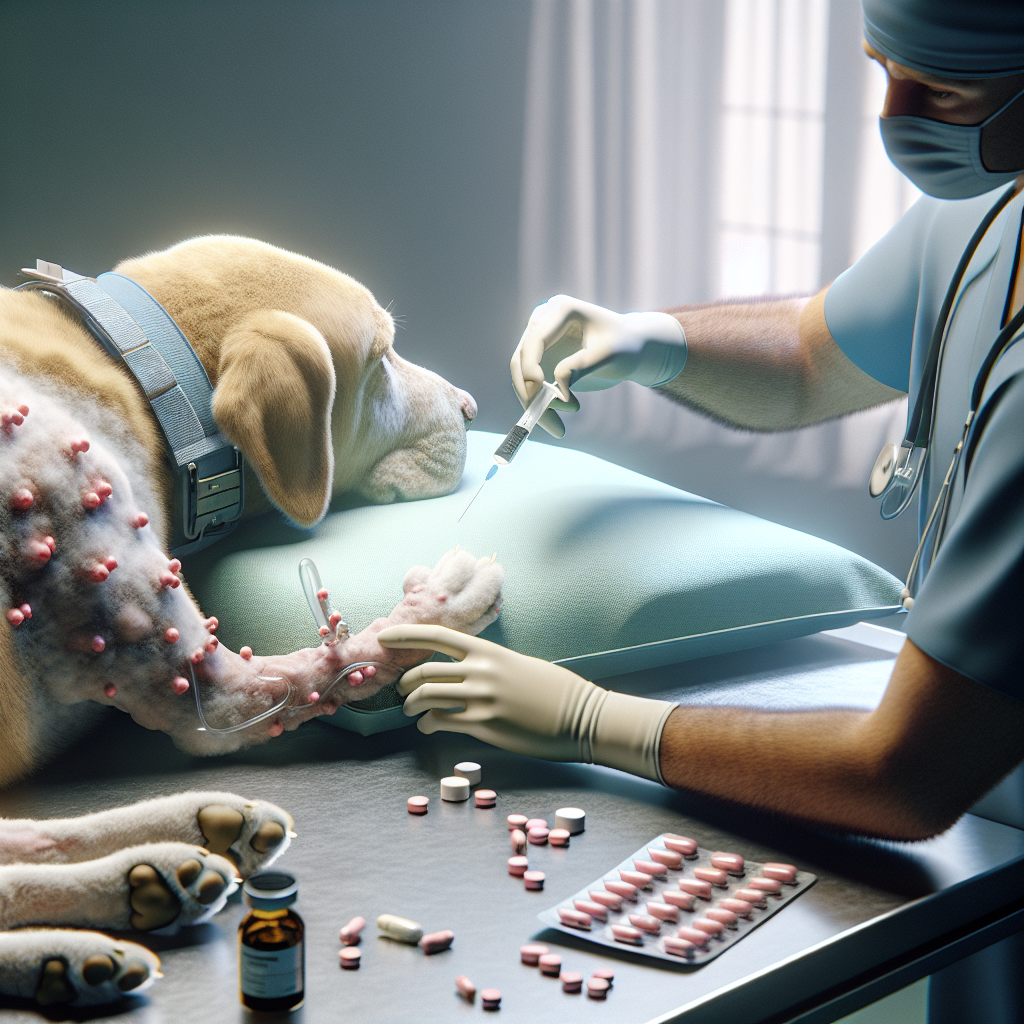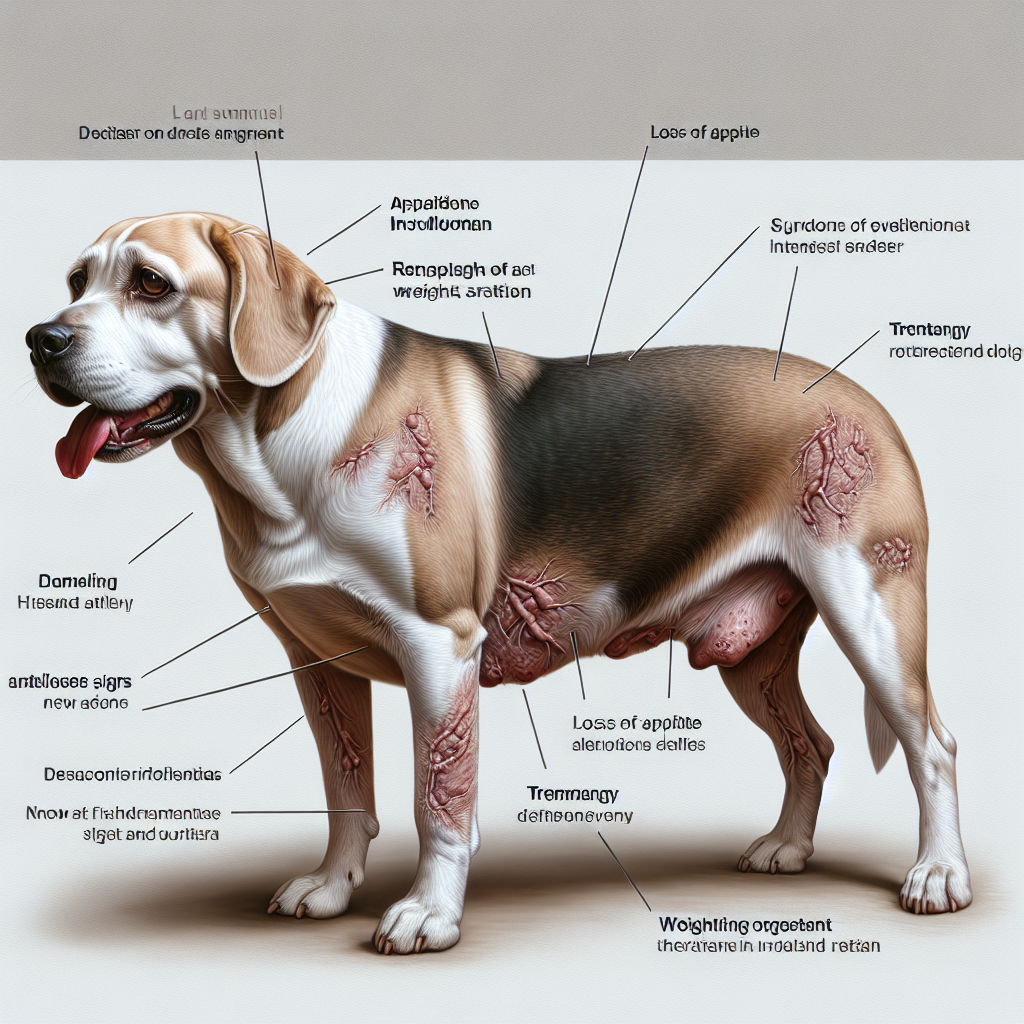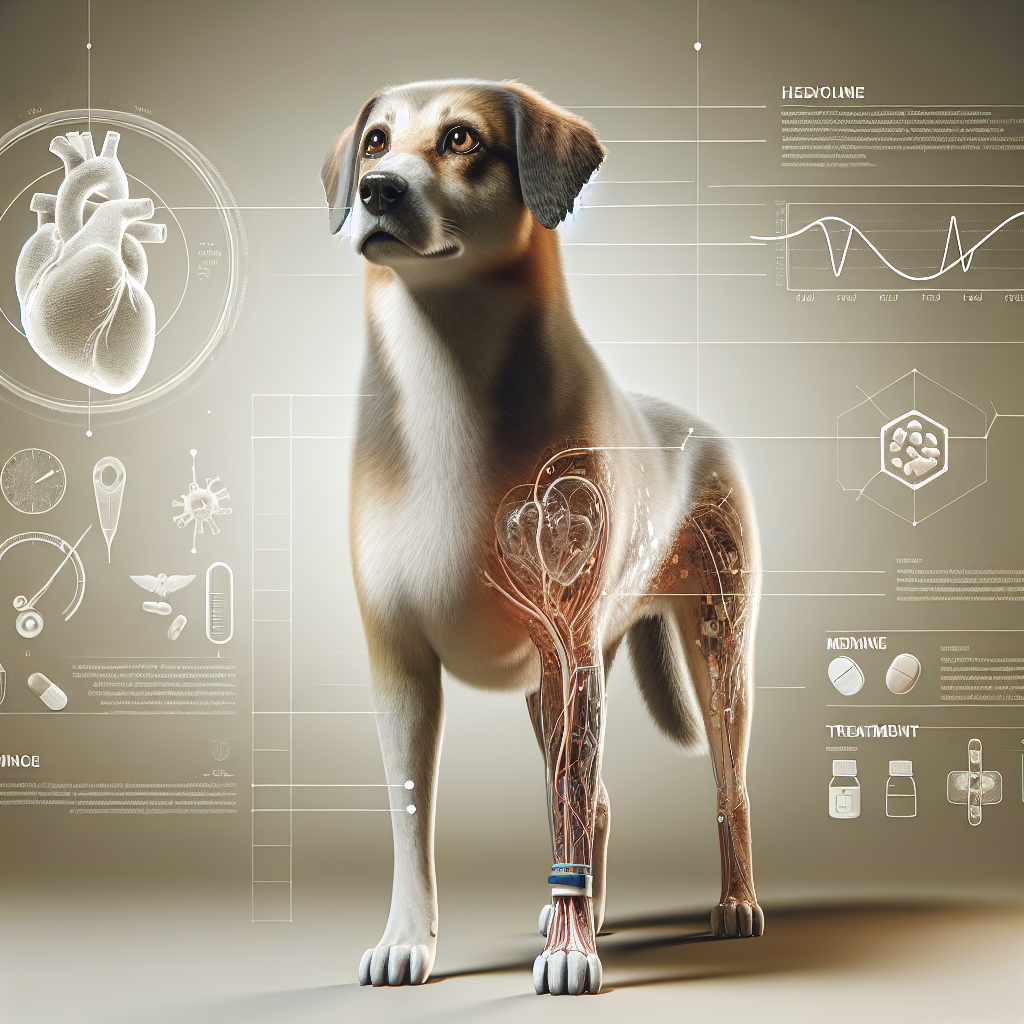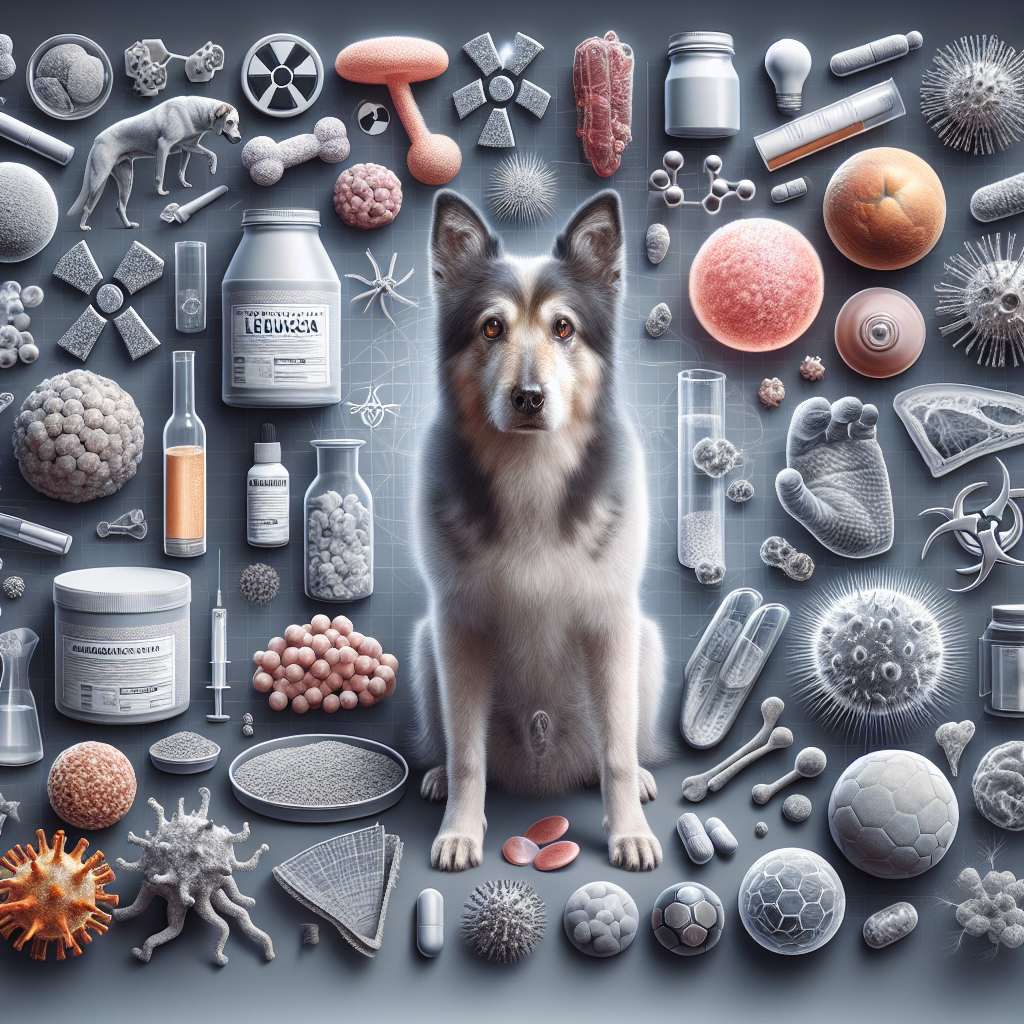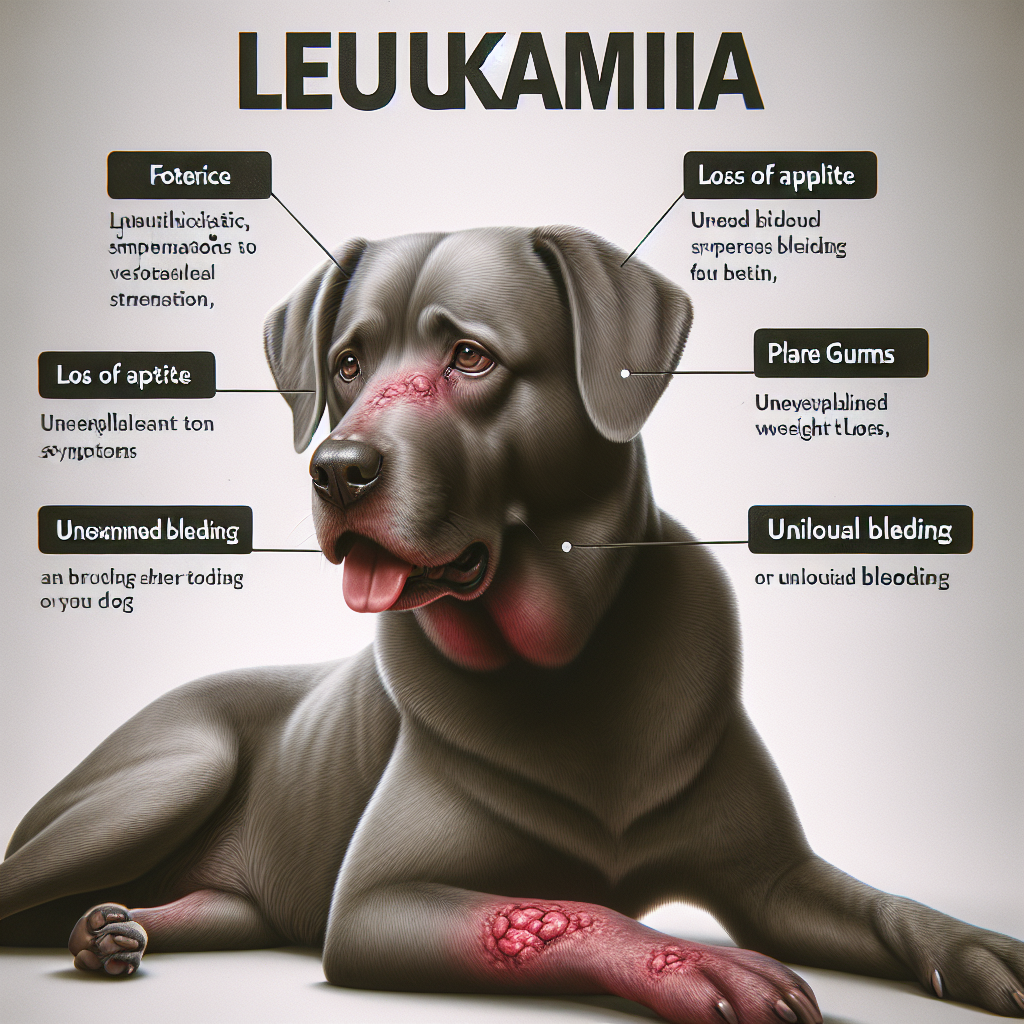Understanding Enlarged Liver in Dogs
Liver enlargement in dogs, also known as hepatomegaly, is a condition characterized by an abnormal increase in the size of the liver. Understanding the causes, risk factors, and symptoms of this condition is essential for timely detection and appropriate treatment.
Causes and Risk Factors
There are various factors that can contribute to the development of an enlarged liver in dogs. These include aging, genetics, infections, trauma, certain diseases, and medications (WebMD). Some specific causes of liver enlargement in dogs include:
- Infections: Bacterial, viral, or parasitic infections can lead to liver enlargement.
- Inflammation: Conditions such as hepatitis or autoimmune disorders can cause liver inflammation and subsequent enlargement.
- Tumors: Liver tumors, both benign and malignant, can result in the enlargement of the liver.
- Hemorrhages: Accidents or trauma can cause bleeding within the liver, leading to enlargement.
- Cysts: Liver cysts, which may be acquired or present at birth, can also contribute to liver enlargement.
- Other Conditions: Certain metabolic disorders, such as copper storage disease or portosystemic shunt, can also cause liver enlargement (PetMD).
It is important to note that an enlarged liver is more commonly found in older dogs (WagWalking). Regular veterinary check-ups and early detection are crucial in managing and treating liver enlargement in dogs.
Symptoms and Detection
Detecting an enlarged liver in dogs can be challenging, as the symptoms may vary depending on the underlying cause. Some common signs that may indicate liver enlargement include:
- Abdominal swelling or distention
- Loss of appetite
- Weight loss
- Lethargy or weakness
- Vomiting or diarrhea
- Increased thirst and urination
If your dog exhibits any of these symptoms, it is important to consult a veterinarian. The vet will perform a comprehensive evaluation, including a physical examination and a review of your dog’s medical history. Diagnostic tests, such as blood work, imaging (ultrasound or X-rays), and possibly a liver biopsy, may be recommended to confirm the diagnosis and identify the underlying cause of the liver enlargement.
Timely detection and proper diagnosis are crucial for effective treatment. To learn more about the treatment options available for liver enlargement in dogs, continue reading our article on treatment for enlarged liver in dogs.
Diagnosing Liver Enlargement in Dogs
When it comes to diagnosing liver enlargement in dogs, a comprehensive evaluation is essential to determine the underlying cause and develop an appropriate treatment plan. This involves a combination of a detailed history, physical examination, and various diagnostic tests.
Comprehensive Evaluation
During the initial assessment, the veterinarian will gather information about your dog’s medical history, including any previous illnesses or medications. They will also inquire about specific symptoms, such as changes in appetite, weight loss, vomiting, or jaundice. This comprehensive evaluation helps in understanding the overall health status of your dog and any potential factors contributing to liver enlargement.
Diagnostic Tests
To confirm liver enlargement and identify the underlying cause, the veterinarian may recommend several diagnostic tests. These tests help evaluate body systems, detect abnormalities, and determine the cause, severity, and stage of liver disease.
Common diagnostic tests for liver enlargement in dogs include:
-
Complete Blood Count (CBC): This test provides valuable information about red and white blood cell counts, platelet levels, and overall blood health. Abnormalities in these parameters may indicate an underlying liver condition.
-
Chemical Blood Profile: A chemical blood profile measures various substances in the blood, including liver enzymes, bilirubin, albumin, and blood glucose levels. Elevated liver enzymes and bilirubin levels can indicate liver dysfunction.
-
Urinalysis: A urinalysis helps assess kidney function and detect any signs of urinary tract infections or abnormalities that may contribute to liver enlargement.
-
Abdominal X-rays: X-rays can provide a visual assessment of the liver’s size, shape, and position. They may also reveal any irregularities or abnormalities in the liver and surrounding organs.
-
Abdominal Ultrasonography: Ultrasonography is a non-invasive imaging technique that allows for a detailed examination of the liver’s structure, size, and blood flow. It can help identify gallstones, irregularities, and diseases of the gallbladder.
-
Additional Tests: In some cases, additional tests such as electrocardiography (ECG) and echocardiography may be recommended to evaluate the structure and function of the heart, as certain heart conditions can contribute to liver enlargement.
By conducting a comprehensive evaluation and utilizing diagnostic tests, veterinarians can accurately diagnose liver enlargement in dogs and determine the best course of treatment. It’s important to consult with a veterinary professional to ensure proper diagnosis and appropriate management of liver diseases in dogs. For more information on the treatment options available, refer to the section on treatment for enlarged liver in dogs.
Treatment Options for Liver Enlargement
When it comes to treating liver enlargement in dogs, the approach may vary depending on the underlying cause and severity of the condition. Treatment plans are often tailored to address the specific needs of each individual dog. In some cases, surgical interventions may be necessary to provide the best possible outcome.
Tailored Treatment Plans
Treatment for an enlarged liver in dogs is highly variable and depends on the underlying cause. It is important to identify and address the root cause of the liver enlargement to effectively manage the condition. Treatment plans may involve a combination of the following strategies:
-
Hospitalization: In severe cases, hospitalization may be required to provide intensive treatment and monitoring. This allows veterinarians to closely monitor the dog’s condition and provide appropriate care.
-
Medications: Antibiotics may be prescribed to treat any underlying infections that could be contributing to liver enlargement. Additionally, supportive medications such as multivitamins and liver supplements may be recommended to promote liver health and function.
-
Fluid Therapy: Dehydration is a common concern in dogs with liver enlargement. Intravenous fluid therapy may be administered to rehydrate the dog and support overall well-being.
-
Dietary Changes: A specific diet may be recommended to support liver function and manage the underlying cause of liver enlargement. This may involve feeding a prescription diet that is designed to be gentle on the liver and provide necessary nutrients.
Surgical Interventions
In certain cases, surgical interventions may be necessary to address liver enlargement in dogs. The decision to pursue surgery depends on factors such as the presence of tumors, abscesses, or cysts that are contributing to the enlargement. Surgery may involve removing the tumor or draining an abscess or cyst.
It is important to note that the prognosis and outcomes of surgical interventions vary depending on the specific condition and the overall health of the dog. Consultation with a veterinarian specializing in surgery is crucial to determine if surgical intervention is the appropriate course of action for your dog.
To effectively manage liver enlargement and related conditions, it is essential to work closely with a veterinarian who can provide guidance based on the specific needs of your dog. Regular monitoring and follow-up appointments are important to assess the response to treatment and make any necessary adjustments. For more information on liver diseases in dogs, visit our article on liver disease in dogs.
Managing Liver Diseases in Dogs
When it comes to liver disease in dogs, effective management is crucial for the well-being of your furry friend. This section will explore two important aspects of managing liver diseases in dogs: prognosis and monitoring, as well as consultation and care.
Prognosis and Monitoring
The prognosis for dogs with liver enlargement (hepatomegaly) depends on various factors, including the underlying cause and the duration of the disease. Some causes of liver enlargement may be less serious, while others can be life-threatening. It is essential to consult with a veterinarian for a proper diagnosis and understanding of your dog’s specific condition.
Regular evaluation and monitoring are key components of managing liver diseases in dogs. This may involve periodic blood tests to assess liver function, as well as imaging techniques like ultrasound to evaluate the size and structure of the liver. These monitoring methods help veterinarians track the progression of the disease and make informed decisions about treatment options.
Consultation with a veterinarian who specializes in liver diseases is crucial. They can provide guidance on the appropriate course of action based on your dog’s specific condition. Treatment plans may include supportive care, dietary changes, medications, surgery, chemotherapy, and immunosuppressive drugs, depending on the underlying cause and severity of symptoms (PetMD, Small Door Vet).
During the monitoring process, it’s important to observe your dog for any changes in appetite, behavior, or overall well-being. Regular communication with your veterinarian is essential to address any concerns promptly and adjust the treatment plan if necessary.
Consultation and Care
Consultation with a veterinarian experienced in liver diseases is crucial for the effective management of liver conditions in dogs. They can provide a comprehensive evaluation of your dog’s condition, recommend appropriate diagnostic tests, and develop a tailored treatment plan.
In addition to medical care, providing proper care and support at home is essential. This may involve dietary modifications to support liver health, including a balanced and easily digestible diet recommended by your veterinarian. Avoid giving your dog any medications or supplements without consulting your veterinarian, as they may interact with the liver or worsen the condition.
It’s important to create a stress-free environment for your dog. Stress can have a negative impact on liver function, so ensuring a calm and peaceful atmosphere can aid in their recovery. Regular exercise, within the limits recommended by your veterinarian, can also help maintain overall health and well-being.
Closely following your veterinarian’s instructions, administering medications as prescribed, and attending regular check-ups are vital for successful management of liver diseases in dogs. Regular communication with your veterinarian allows for ongoing evaluation of your dog’s progress, adjustments to the treatment plan if needed, and proactive management of any potential complications.
By actively participating in the consultation and care process, you can contribute to the overall well-being and quality of life of your dog. Remember, early detection, proper monitoring, and timely intervention are key elements in managing liver diseases in dogs.
Liver Cancer in Dogs
Liver cancer in dogs can be a concerning diagnosis. The most common type of primary liver cancer in dogs is hepatocellular carcinoma (HCC), although other types such as bile duct carcinoma, neuroendocrine tumor, and mesenchymal sarcoma can also occur (Carolina Veterinary Specialists). Let’s explore the types and symptoms of liver cancer in dogs, as well as the available treatment options and prognosis.
Types and Symptoms
Hepatocellular carcinoma (HCC) is the most common form of liver cancer in dogs. It can present in three ways: massive, nodular, or diffuse. Massive tumors are the most frequently observed form and have a relatively lower rate of metastasis compared to nodular or diffuse tumors.
Symptoms of liver cancer in dogs may not be apparent in the early stages. However, as the disease progresses, common symptoms can include:
- Unusual bloodwork results, such as elevated liver enzymes or changes in clotting factors.
- Liver enlargement, which may be detected during a physical examination.
- Abdominal pain upon palpation.
It’s important to note that liver cancer can affect dogs of different ages, although it is more commonly diagnosed in older dogs (Carolina Veterinary Specialists). If you notice any concerning symptoms or suspect liver cancer in your dog, it’s crucial to consult with a veterinarian for a comprehensive evaluation and proper diagnosis.
Treatment and Prognosis
The most effective treatment for liver cancer in dogs is often surgical removal of the tumor. Dogs diagnosed with massive liver tumors that can be surgically removed have a good prognosis and may live for years following treatment (Carolina Veterinary Specialists). However, the prognosis may vary depending on the type of liver cancer and the extent of the disease.
In cases where the tumor cannot be surgically removed or if the cancer is metastatic, the prognosis may be less favorable. Metastatic liver cancer in dogs can occur when the cancer has spread from another part of the body, such as lymphoma, pancreatic cancer, or intestinal carcinoma (Carolina Veterinary Specialists).
Other treatment options for liver cancer in dogs may include chemotherapy, radiation therapy, or palliative care to manage symptoms and improve the quality of life. The specific treatment approach will depend on various factors, including the type and stage of the cancer, as well as the overall health of the dog. It is essential to consult with a veterinarian who can provide guidance on the most suitable treatment plan for your dog’s individual situation.
Early detection, prompt veterinary consultation, and tailored treatment plans can significantly impact the prognosis for dogs with liver cancer. Regular monitoring and follow-up care are essential to ensure the best possible outcome. If you have concerns about liver health or suspect liver cancer in your dog, seek veterinary attention promptly for an accurate diagnosis and appropriate management strategies.






